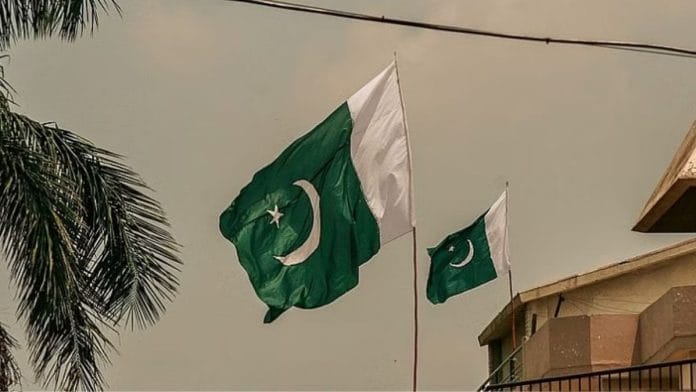New Delhi: Pakistan ranks lowest in the Global Gender Gap report, and Pakistanis are not even remotely surprised. All of them agree: “Pakistan is officially the worst place to be a woman in the entire world.”
The report, released Thursday, paints a stark picture. Pakistan’s overall gender parity score declined for the second consecutive year, falling to 56.7 per cent from 57 per cent in 2024. It remains the only country in South Asia to have closed less than 60 per cent of its gender gap.
While the WEF report noted small gains in female literacy, they were overshadowed by sharp declines in women’s economic participation and political representation, sparking widespread frustration online.
“When a state is built on controlling women instead of empowering them, this is where it ends,” wrote Pakistani writer and activist Wazma Khan Nassar on X.
“Pakistan didn’t just fall behind — it was dragged here by decades of deliberate patriarchy and political cowardice,” she added.
Also read: Pakistani TikToker shot dead at her Islamabad home. ‘No country for young women’
Despair and disparity
Among the four key pillars measured by the report—economic participation and opportunity, educational attainment, health and survival, and political empowerment—Pakistan saw the steepest decline in the economic domain.
Its score in this area fell by 1.3 percentage points, exacerbated by widening wage and income gaps. According to a 2024 World Bank report, women constitute just 22.8 per cent of the country’s workforce. Their representation in leadership roles remains negligible.
The report has now cited a four-point increase in perceived wage inequality, suggesting that even as more women enter the workforce, they continue to face entrenched structural barriers to equal pay and advancement.
“Congratulations to Pakistani men. You have officially made Pakistan the worst place in the world to be a woman,” Pakistani activist Mavra Ghaznavi wrote sarcastically on X.
There was, however, one area of cautious optimism: educational attainment. Pakistan’s score improved by 1.5 percentage points, reaching 85.1 per cent parity, primarily due to a rise in female literacy from 46.5 per cent to 48.5 per cent.
But there’s a catch: The report noted that this progress at the university level was largely due to a decline in male enrollment, rather than a significant increase in female participation.
The report also noted a sharp drop in political empowerment, an area Pakistan historically fares the worst. The score in this category fell from 12.2 per cent in 2024 to 11 per cent in 2025.
While women’s representation in parliament inched up by 1.2 percentage points, the percentage of women holding ministerial positions fell to zero, down from 5.9 per cent the previous year, leaving Pakistan with no female ministers at the federal level.
Also read: Maryam Nawaz brings new law to control publicity campaigns. Pakistanis call it ‘peak fascism’
Hitting rock bottom
The reaction online was swift and damning. Some users reacted with biting sarcasm. “Congratulations to all of us. We’ve finally achieved our goal. Now let’s blame Aurat March for this and pass even more regressive laws,” wrote X user Zain Raza.
Others channeled their outrage into a broader critique of Pakistan’s social fabric.
“About the WEF’s gender gap report that just came up, proudly hitting the rock bottom, some sick minds still believe that women are living their best lives here! Calling out all the misogynists and those ungrateful women, y’all feeling accomplished now?” Pakistani X user Saffat Ijaz wrote.
Others chose to indulge in wishful thinking: “I wish molvis held nationwide protests for this instead of their right to marry children,” X user Areeba Afzal noted.
(Edited by Theres Sudeep)






